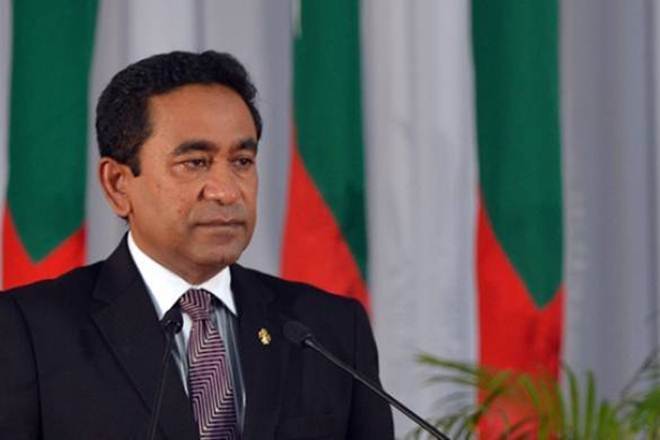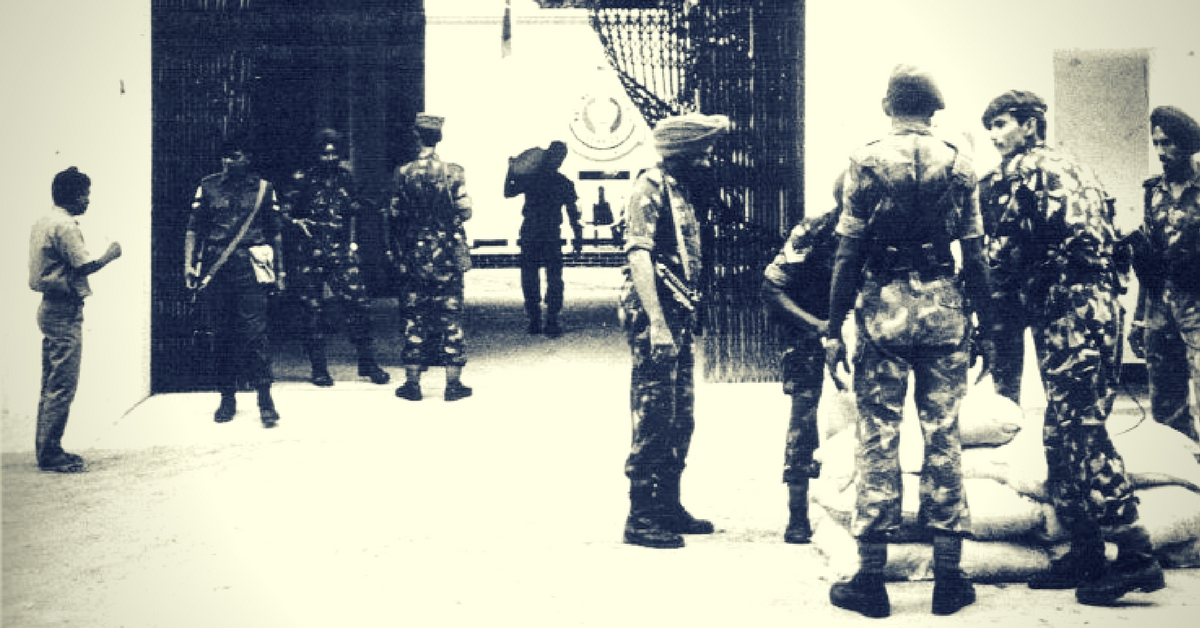The tropical island nation of Maldives, which is located at a distance of 1300 km from Chennai, is in political turmoil. Merely days after the Maldivian Supreme Court passed a judgement ordering the release of all political prisoners and a retrial of former president Mohamed Nasheed, the incumbent President Abdulla Yameen, has announced a state of emergency in the country for 15 days.
His government has suspended the country’s Supreme Court and arrested the Chief Justice of Maldives, among other opponents. Making matters worse for India is the uneasy relationship New Delhi and President Yameen share.

Nonetheless, India has a long and distinguished relationship with the island nation. Many Maldivians travel to India for higher education and quality medical treatment in the southern states of Kerala and Tamil Nadu. In 1981, both nations signed a special trade agreement, which gave the Maldives access to certain items that India does not usually import.
The island nation is also dependent on India for the supply of essential supplies, and for the most part, both countries share a close and cordial relationship. The Maldives is also a major tourist destination for Indians. However, this political crisis has compelled the government to issue a circular for its citizens on the island.
“The prevailing political developments in the Maldives and the resultant law and order situation is a matter of concern for the Government of India,” said the advisory. It further asked Indian nationals to “defer all non-essential travels to Male and other atolls until further notice.”
In the past, India has helped out the island nation during difficult circumstances. In 2014, Maldives suffered a serious potable water crisis when its only desalination plan caught fire.
India was the first country to offer assistance. The Indian Navy deployed INS Sukanya and the INS Vivek which possess the necessary systems to purify water on board. These ships were stationed at Male harbour until the repair of the desalination treatment plant was complete.
Of greater resonance, however, was the role India played in 1988, saving the then president of Maldives, Maumoon Abdul Gayoom, from an attempted coup by Sri Lankan Tamil militants (People’s Liberation Organisation of Tamil Eelam) backed by Maldivian businessman Abdulla Luthufi. It is imperative to remember that this was a time when the Indian Peace Keeping Force (IPKF) was embroiled in the brutal Sri Lankan civil war.
In response to Abdul Gayoom’s plea on November 3, 1988, the Rajiv Gandhi government sent Indian troops to protect a sovereign nation from the clutches of a hostile coup driven by mercenaries.
Within 16 hours (or 9 hours by some accounts) of Gayoom’s SOS call to New Delhi, the Indian government dispatched “elements of the 50th Independent Parachute Brigade, commanded by Brigadier Farukh Bulsara, the 6th Battalion of the Parachute Regiment, and, the 17th Parachute Field Regiment,” on the Ilyushin Il-76 aircraft from Agra to the Male International Airport on Hulhule Island, travelling more than 2700 km.
Going by various accounts of the operation, it was evident that many on the mission had little idea about the island’s geography. The troops were assisted by AK Banerjee, the Indian high commissioner to the Maldives, who was the only one with any idea about the geographical contours of the island.
While the mercenaries had taken control of key strategic points on the island, the one place they forgot was the airport and this where the Indian troops landed. The troops soon took control of the airport, traversed across the lagoon and overpowered the mercenaries in Male, and finally came to the rescue of President Gayoom.
When the Indian troops wrestled control of Male, the mercenaries attempted to flee in a small boat carrying hostages. However, they were stopped in their tracks by INS Godavari and INS Betwa of the Indian Navy. The operation was a real success for India at a time of real difficulties in Sri Lanka. India’s actions on the island received praise from the international community, with the exception of a few South Asian nations.
Read also: How an Auschwitz Survivor Helped India Get Israel’s Aid in the 1971 War
“The Indian Ocean is becoming more important by the day and India has vital stakes in its stability. The small island states in the area are vulnerable to the kind of threat that compelled India to send its paratroopers in 1988 on behalf and at the invitation of an elected government. There have been similar threats in Mauritius and Seychelles,” writes Manoj Joshi, a seasoned strategic analyst and Distinguished Fellow at the Observer Research Foundation, for The Wire.
With China furthering its influence in the region, India has its task cut out.
“Future contingencies may not be that clear-cut but what is important is to have the tri-service capability of quick reaction. The states in the region trust India, which is the flag-bearer of democracy and an upholder of a rule-based approach to international relations,” Joshi adds.
Read also: Remembering the Brilliant IAS Officer Who Was India’s Most Respected Strategic Thinker
Despite retelling this story, it is imperative to note that another Operation Cactus in the Maldives in unlikely at this juncture, despite India’s difficult relationship with the current incumbent in Male.
Circumstances today are very different, and the geopolitical dynamics of the region have changed significantly. In the words of seasoned defence analyst Nitin Gokhale, “we must remember India sent paratroopers there at the invitation of the incumbent President”. That isn’t the case today. Having said that, it is imperative to remember India’s good deed here.
Like this story? Or have something to share? Write to us: contact@thebetterindia.com, or connect with us on Facebook and Twitter.
NEW: Click here to get positive news on WhatsApp!
If you found our stories insightful, informative, or even just enjoyable, we invite you to consider making a voluntary payment to support the work we do at The Better India. Your contribution helps us continue producing quality content that educates, inspires, and drives positive change.
Choose one of the payment options below for your contribution-
By paying for the stories you value, you directly contribute to sustaining our efforts focused on making a difference in the world. Together, let's ensure that impactful stories continue to be told and shared, enriching lives and communities alike.
Thank you for your support. Here are some frequently asked questions you might find helpful to know why you are contributing?

